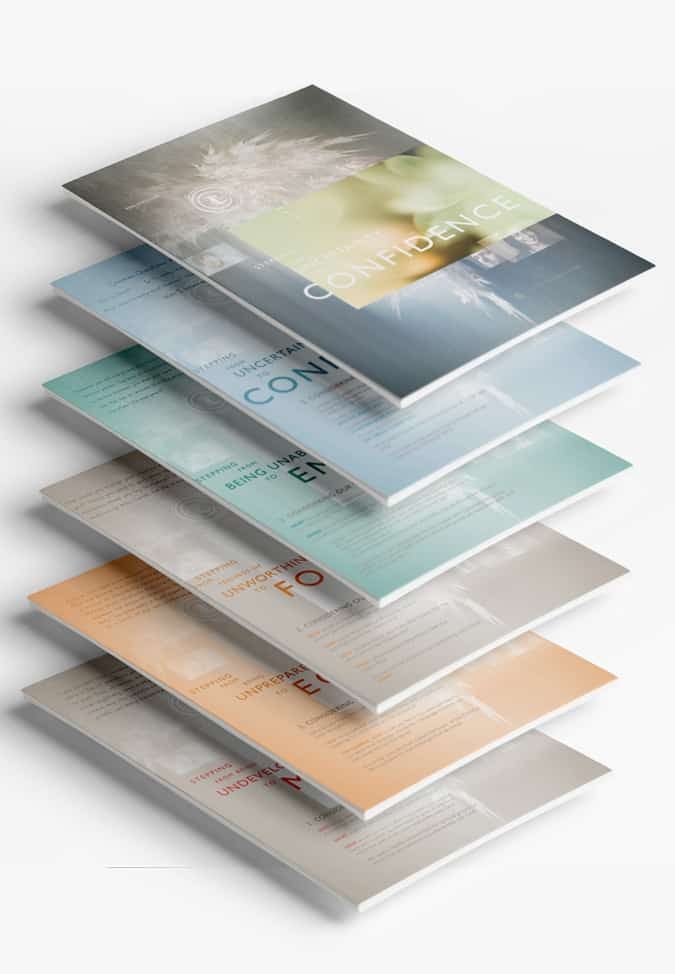How Do I Give Thanks Even in Suffering?

I shifted my weight and paper crackled under me. My chest constricted, my eyes sagged and my mind tangled like an old cobweb.
The doctor looked up, “There’s hope for guys your age, this isn’t unusual.” I doubted that and continued rocking back and forth.
I come back to that room in my mind a lot. The room with the asylum just a doctor’s note away.
My father sat across from me, a steadying presence. My wife held my hand, scared. I rocked with chronic anxiety and depression. My fears had distended into sleepless nights, sweaty sheets and a sick and hopeless heart.
The walls of my life closed in when I was just 23, newly married and a grad student – and I wanted out. In the basement of my parents’ house I cursed God.
With tears carelessly wiped and flung, my fists pounded the bed. I yelled my pain into pillows. I screamed at God, scared he’d leave me.
He didn’t leave. He never intended to.
Fourteen years later, I still struggle with anxiety, but the doctor was right. There is hope. It’s the practice of giving thanks.
The Gift of Thankfulness
There’s a book I always go back to, One Thousand Gifts by Ann Voskamp. A friend dared her to write 1,000 things she was thankful for in a year. A mother of six and farmer’s wife, Voskamp finds epiphanies around every corner.
The smallest thing, like the way sunlight hits grated cheese, fills her with happiness.
As a guy, I picked up the book skeptically. The cover shows a pair of hands holding a nest with robin eggs and a background just a touch lighter than “Lady Finger Beige”. Yes, I had to research that color, as well as how to spell “beige”.
But this line slashed through my skepticism: “I enter the world like every person enters the world: with clenched fists.”

Ann Voskamp tells the story of a truck hitting and killing her little sister. As a result of the accident, her life closed to any notion of grace. She started what she calls “Living the No.” She says at the heart of our fallen condition is ingratitude, saying “No” to God.
Voskamp’s “thanks dare” was no game for her, it was life or death.
In case I had any doubt that thanksgiving was at the core of the Christian message, she writes that saying no to God began in the Garden of Eden and ended in the Garden of Gethsemane.
Jesus saying yes to God’s will led to giving thanks at the last supper, giving thanks for his impending death and giving thanks for the joy he knew was coming.
But I’m thinking, That’s Jesus? How do I get there?
Voskamp says opening our fists and giving thanks only comes through practice in the small things. She backs this up with a quote from Thomas Erasmus, “A nail is driven out by another nail; habit is overcome by habit.”
When I’m tempted to think Voskamp’s practice of giving thanks for small things is trite, sentimental and perhaps offensive, she quips, “Driving nails into a life always is offensive.”
But this nail driving is for joy.
Unclenched Fists
The idea of habit lines up with my life metaphor: my love of soccer. As a kid, I loved playing soccer in the backyard. I ran with the ball, endlessly dodging the invisible defenders and breaking the occasional window – Sorry, Dad.
Through consistent training, the ball became a friend to my feet, moving in swift response to my whims. That ball filled me with joy. Yet when it comes to spiritual habits I’m not so consistent.
Your form of thanksgiving may not be a list like Voskamp’s. But the principle of looking for God’s blessing not only in the big things, but in the minutia of the everyday, can grow your appetite for life with Him.
Suddenly a cool morning breeze, or ice water, or a smile from a child, or a door held by a stranger, becomes a grateful conversation with God.

When God woos me to open my fist to grace, I can open it to pain as a part of that grace. Even pain will one day be a gift because only God can transform and birth joy out of it. He’s the God of the cross.
Yet thanksgiving is no quick, easy fix, or recipe for skipping past our emotions. In fact, it’s the opposite.
When my fists ball, I, like King David in the Psalms and Jesus when He heard of John’s death, have the same God who held them as they beat against His chest.
This liberates me to no longer divide my life up into curse moments and grace moments.
Take a moment in your day to sit down, open your hands upwards and look around. What do you see that is a direct gift from God?





















